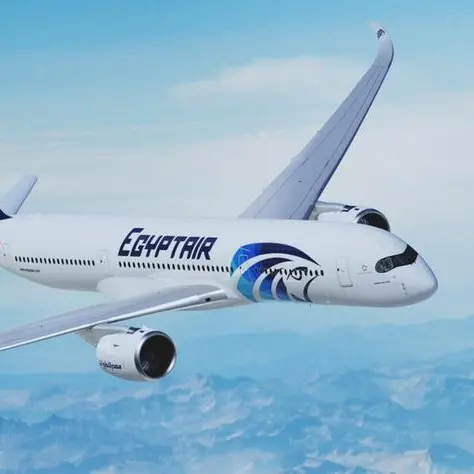PHOTO
Africa’s telecom market is booming and shows no signs of slowing down. Improvements in digital infrastructure, rising affluence and challenges presented by COVID-19 have spurred growth in mobile usage and mobile commerce.
In the first quarter of this year, Africa accounted for a fifth of new mobile subscriptions worldwide, with South Africa alone posting the third-highest global numbers of net additions, according to the Ericsson Mobility Report 2021.
At the end of last year, 495 million in Sub-Saharan Africa, equal to 46 percent of the region’s population, subscribed to mobile services. That figure is expected to jump to 615 million by 2025, according to GSM Association, a telecom industry association. SIM connections will rise 4.8 percent annually to reach 1.12 billion by 2025.
“Over the period to 2025, 4G adoption in Sub-Saharan Africa will double to 28 percent, compared to a global average of 57 percent,” the GSMA forecast states. “It is still early stages in the journey to 5G in Sub-Saharan Africa; as of June 2021, there were seven commercial 5G networks in five markets across the region. By the end of 2025, 5G will account for 3 percent of total mobile connections in the region.”
Robust mobile telecom infrastructure can help Africa overcome a number of challenges, including remote access to financial, healthcare and government services that can help improve the standard of living in the continent and unlock growth and economic activity.
Moody’s Investors Service expects the telecommunications sector in many SSA countries to continue growing over the next three to five years.
“This will be supported by the region’s young and fast-growing population, relatively low mobile and even lower internet penetration rates, and growing adoption of smartphones," Moody’s said in a report.
South Africa–based MTN Group, the continent’s largest telecom operator, said its earnings before interest, taxation, depreciation and amortization (EBITDA) grew 6.6 percent during the first half of the year, despite slow COVID-19 rollout and economic slowdown.
“Notwithstanding the challenges of slow vaccine rollout in the period, we were encouraged by the progress in digital and financial inclusion across our markets,” Ralph Mupita, the CEO of MTN Group, said in an H1 2021 report.
The company is rolling outs its Ambition 2025 strategy, which aims to boost revenues from its fintech business; boost digital and financial inclusion in South Africa, Nigeria and seven other African states it operates in; and drive broadband connectivity.
UAE-based Etisalat also saw its revenues grow 27 percent in Egypt in the second quarter. In addition, its unit Maroc Telecom Group also saw an 8 percent increase during the period. The company has operations in Mauritania, Burkina Faso, Gabon, Mali, Côte d’Ivoire, Benin, Togo, Niger, the Central African Republic and Chad.
In August, Etisalat raised its stake in stake in MT Group from 48.4% to 53% as part of its investment in Etisalat Investment North Africa LLC.
EMBRACING 5G
Apart from COVID-19, the continent is in the midst of rapid change, with at least 100 million Africans expected to have entered the middle class over the past decade. The pervasiveness of technology in all walks of life can help African consumers and businesses catch up with the rest of the world in adopting new social and business services and payments.
Ericsson expects mobile broadband subscriptions to account for 76 percent of all mobile subscriptions by 2026 in the SSA region, with 5G and 4G subscriptions gaining ground and opening up opportunities for new digital services.
“Driving factors behind the growth of mobile broadband subscriptions include a young, growing population with increasing digital skills and more affordable smartphones,” Ericsson noted. “Over the forecast period, discernible volumes of 5G subscriptions are expected from 2022, reaching 7 percent in 2026.”
However, the challenges to growth in Africa are not insignificant either. Lack of electricity remains a major challenge in parts of Africa, as does affordability. Businesses also need to leverage existing technologies and offer services that will spur growth in the use of services, but that has only occurred in regional pockets.
To ensure universal access to connectivity by 2030, according to the World Bank, more than 250,000 new 4G base stations need to be built and at least 250,000 kilometres of new fiber deployed in the region.
Enterprising companies are looking to overcome some of the challenges. Telecom operator Orange, for example, developed solar kits in Burkina Faso that allow customers to recharge their devices. The project is expected to be rolled out in the Central African Republic, the Democratic Republic of Congo, Liberia, Mali and Sierra Leone.
MOBILE COMMERCE
Despite the significant challenges, mobile technologies and services in the Sub-Saharan Africa region generated $130 billion of economic value, or 8 percent of GDP, in 2020, and GSMA expects that figure to rise to $155 billion by 2025.
“Mobile money in particular is driving productivity; in 2020, the value of transactions on mobile money platforms in the region reached $490 billion,” GSMA said.
Investments are also pouring into the region’s mobile commerce sector to boost growth. Telecom operators in Africa are expected to invest $45 billion in capital expenditure over the next four years.
In 2019, Mastercard invested $100 million in Airtel Mobile Commerce BV, the mobile money business arm of telecom Airtel Africa. Airtel Money, a digital mobile financial services platform, offers mobile wallet deposit and withdrawals, merchant and commercial payments, benefits transfers, loans and savings, virtual cards and international money transfers.
“Through our partnership we will enable over 100 million Airtel Africa customers to make safe mobile money purchases online and in person,” said Raghunath Mandava, the CEO of Airtel Africa.
This year, AMC secured $200 million from The Rise Fund.
“Financial inclusion is a global issue that is most acute in Africa. Through Airtel Money, Airtel Africa has built a unique platform that is closing the gap between traditional financial institutions and the millions of unbanked Africans across the 14 countries where Airtel Africa operates,” said Yemi Lalude, a partner at TPG who leads Africa investing for The Rise Fund. “We look forward to working with Airtel Africa to enhance their mobile money services, broaden its use cases, and grow into new markets.”
In July, a unit of Qatar Investment Authority also plunked down $200 million for a stake in AMC, valuing the company at $2.65 billion.
UK-based telecom operator Vodafone Group and Chinese tech giant Alibaba are also teaming up to boost e-commerce sales in South Africa via a ‘super app’. The UK company’s ecommerce drive will also be deployed by its Kenyan partner, Safaricom Plc, whose M-Pesa mobile-money service accounts for about a third of its revenues in the continent. M-Pesa will also reportedly offer more online retail and financial services in other markets such as Tanzania.
The World Bank estimates close to $100 billion in investments are needed to ensure universal access to broadband connectivity by 2030 across Africa. This includes $53 billion in network operation and maintenance, $29.5 billion in infrastructure capex and $18 billion in ICT skills and content.
(Writing by Syed Husain; editing by Seban Scaria seban.scaria@refinitiv.com)
Disclaimer: This article is provided for informational purposes only. The content does not provide tax, legal or investment advice or opinion regarding the suitability, value or profitability of any particular security, portfolio or investment strategy. Read our full disclaimer policy here.
© ZAWYA 2021




















